From Poacher to Hunter: The Curious Tale of Papa Gambo
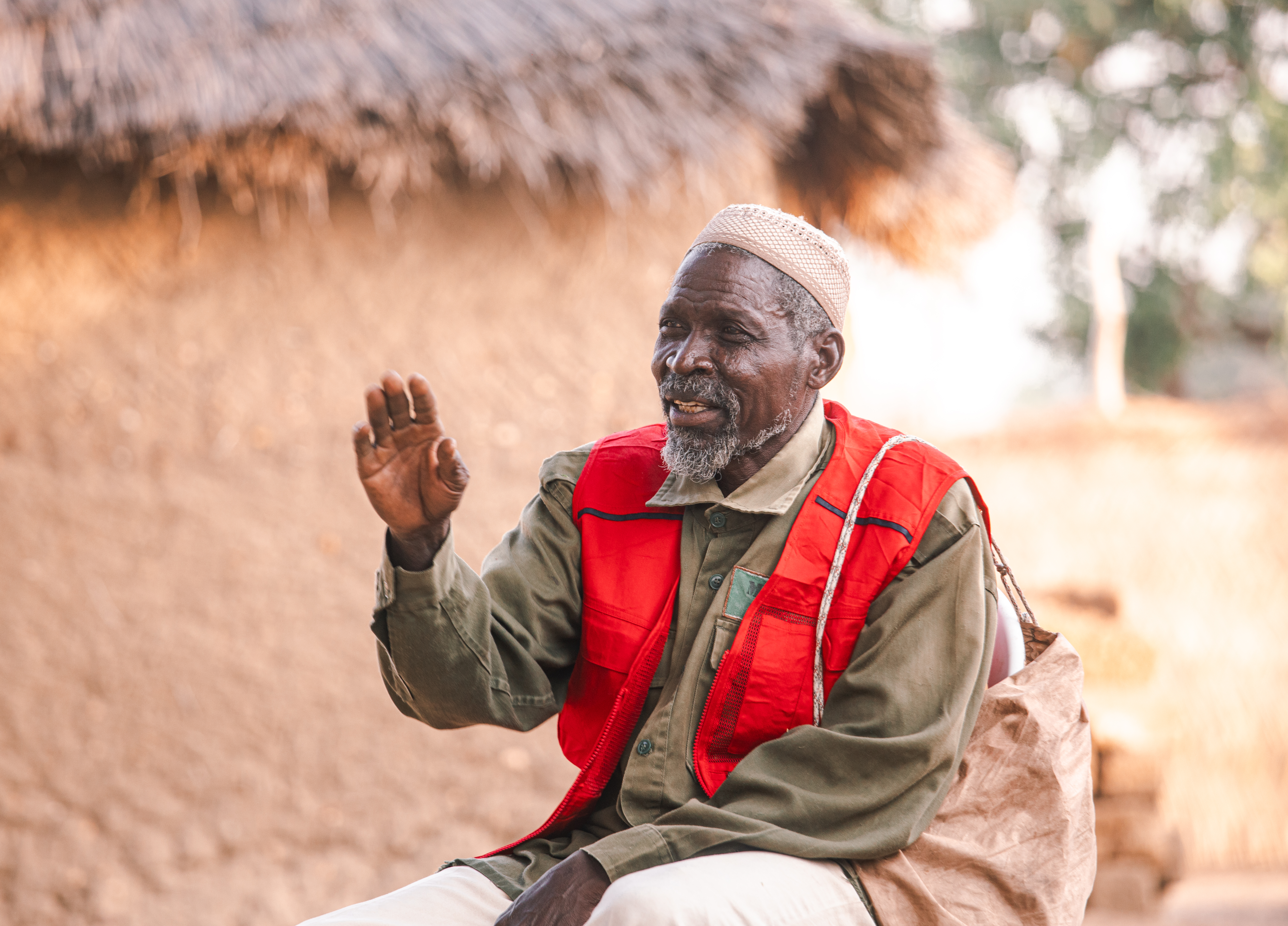
Papa Gambo sitting outside his house
For as long as he can remember, Papa Gambo has begun each morning the same way. He rises, stretches, faces east, and whispers a prayer, one that asks for protection for his wives, his children, and the world he lives in.
It is a quiet act of surrender, a daily reminder of humility before nature. But over the years, what he asks for in those prayers has changed.
“I used to ask for protection from the army,” he says. A smile parting his leathery face, covered by dark skin punctuated with wisdom and time.
In his youth, Papa Gambo walked through the forests of Faro National Park with a bow in hand and a quiver on his back. He knew every animal trail, every salt lick, every watering hole. And he hunted them all.
Seated outside his house with the sun gently announcing its presence before sending a heat wave his way, he remembers the days gone past.
“I would poach everything,” he says. “Gazelles, hippos, buffaloes, giraffes… everything.”
For Papa Gambo, poaching was a way of life. A treacherous, dangerous path that he chose to follow.
Until a chance meeting in 1989.
He doesn't talk much about that moment, but it marked the beginning of a new life. One that would redefine his legacy, shape his family’s future, and ultimately connect two worlds: the traditional knowledge of Indigenous peoples and the modern tools of conservation science.
A change in heart.
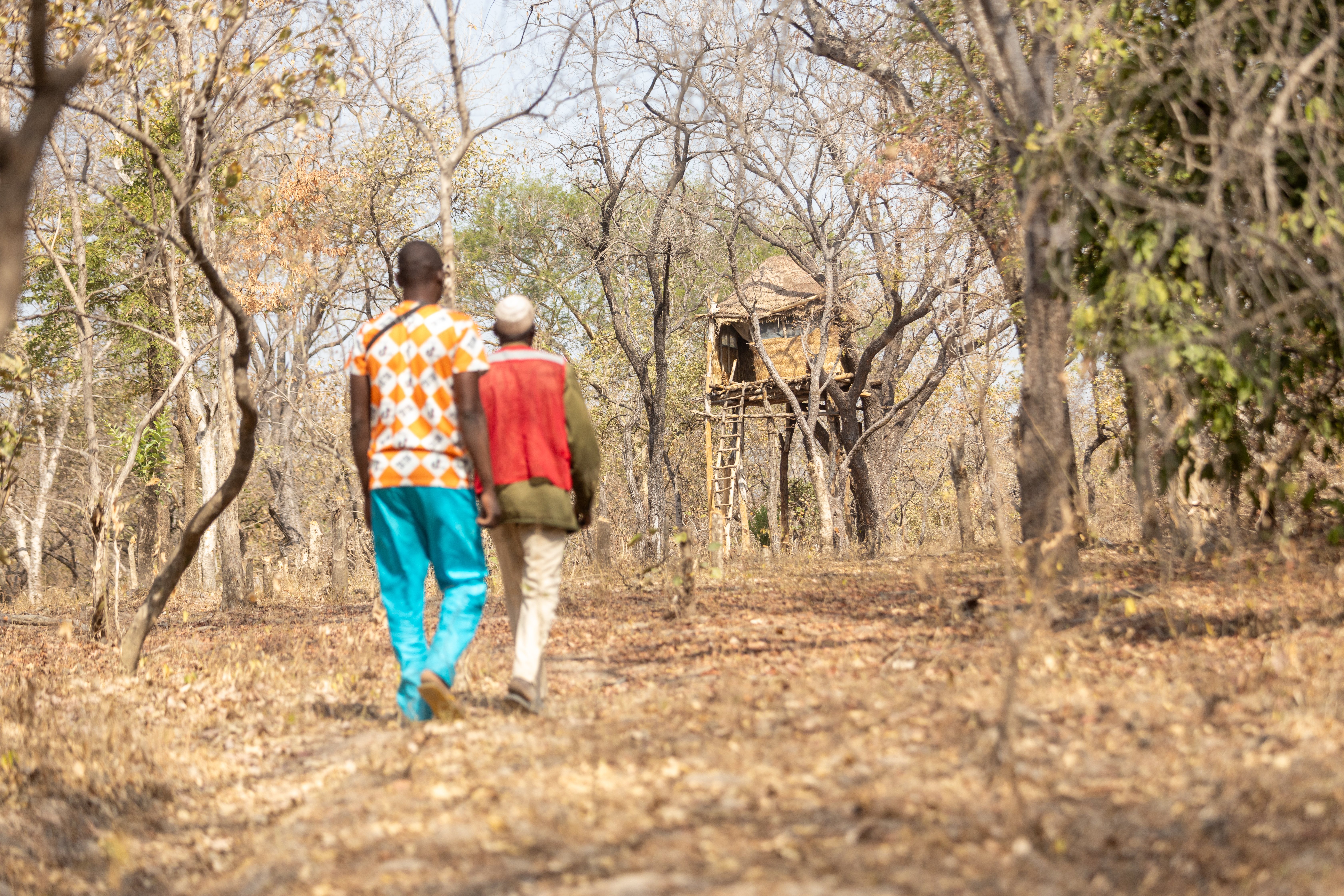
Papa Gambo and his son Ibrahima Gambo
Ibrahima Gambo is a younger version of his father. Though age separates the two men, their love for conservation and the environment always brings them together.
“I have seen what my father has given for the earth. I have seen the sacrifices he has made,” Ibrahima says. “For years, I have also seen what others have given unto him.”
The Gambos live in Mayo Jarandi, a village on the borders of Faro National Park.
Named after a river of the same name, the park is part of a conservation landscape that spans some 344,249 hectares. It is home to diverse wildlife, including elephants and the largest hippo population in Central and West Africa.
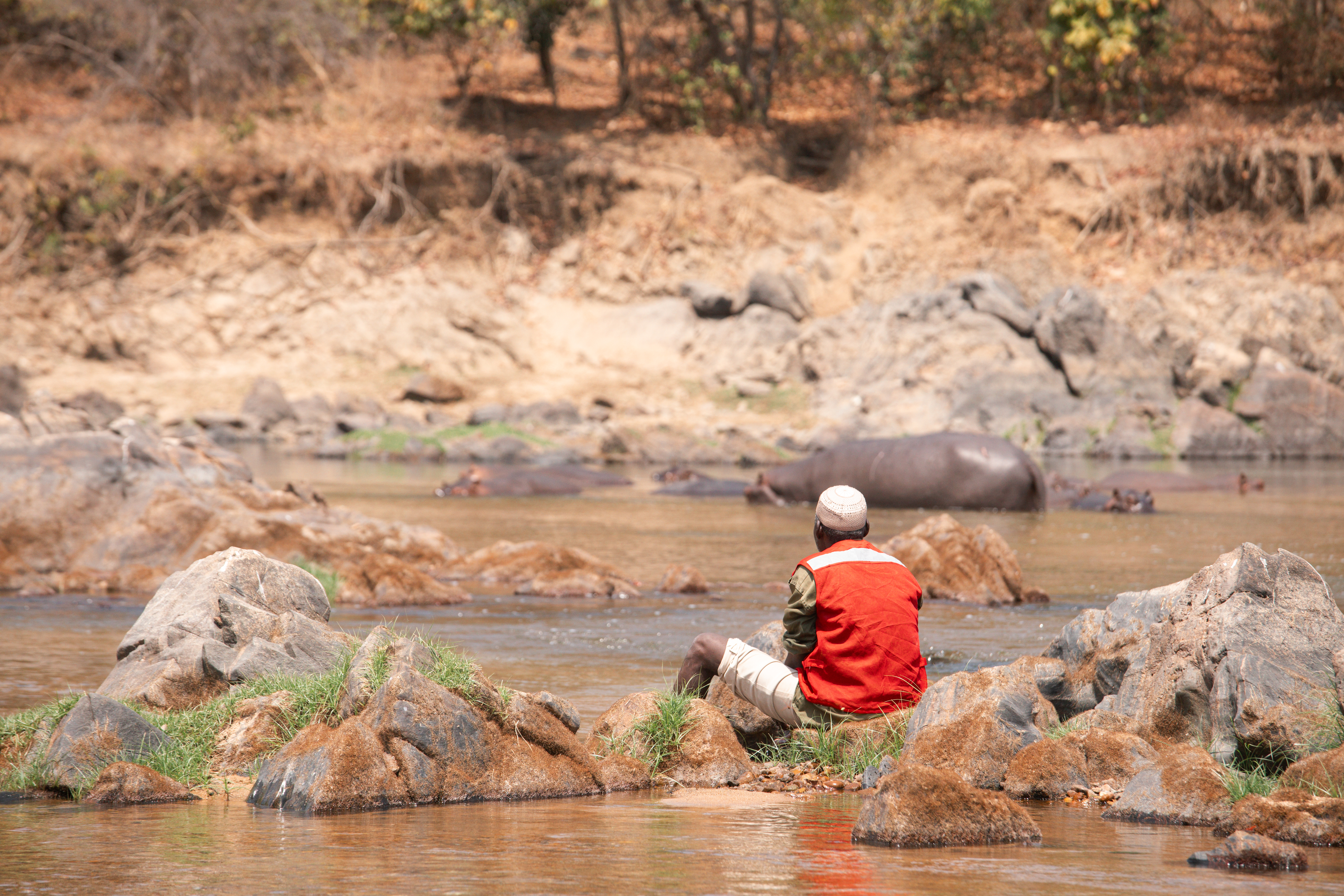
Papa Gambo sitting at the river bank of River Faro with hippos in the distance
Maintaining its rich biodiversity requires a holistic response to challenges including commercial poaching, transhumance (seasonal cross-border livestock herding), illegal fishing, and climate change impacts.
The African Wildlife Foundation (AWF) supports the Cameroonian government in managing Faro National Park while ensuring that conservation supports the needs of local communities and Indigenous people such as Papa Gambo and his son.
“There has been change in his life… and in our lives too,’ Ibrahima says.
Papa Gambo’s indigenous knowledge of all that is around him is enormous. But in 2013, he sought to fuse the knowledge passed down to him by his forefathers with a less traditional form of knowledge. He enrolled in an anti-poaching course in the neighboring Benue National Park which he completed in 2013.
Almost a decade later, his son was to follow in his footsteps. Enrolling in an institution of higher learning and graduating with honors all because his father, now in permanent employment as an Eco- guard could afford to pay school fees for his son from the salary he receives at the end of every month.
“It did not take a week before I was employed as an Eco- guard within the technical unit after I completed my studies in 2021,” Ibrahima says.
Giving back to nature.
Today, as his father sings to the hippos burying themselves within the deepest crevices of River Faro. As he speaks to remind them of days past when water levels were worse than they are and when a bow and arrow were all he knew, Ibrahima instead inspects camera traps set up around key areas of the park.
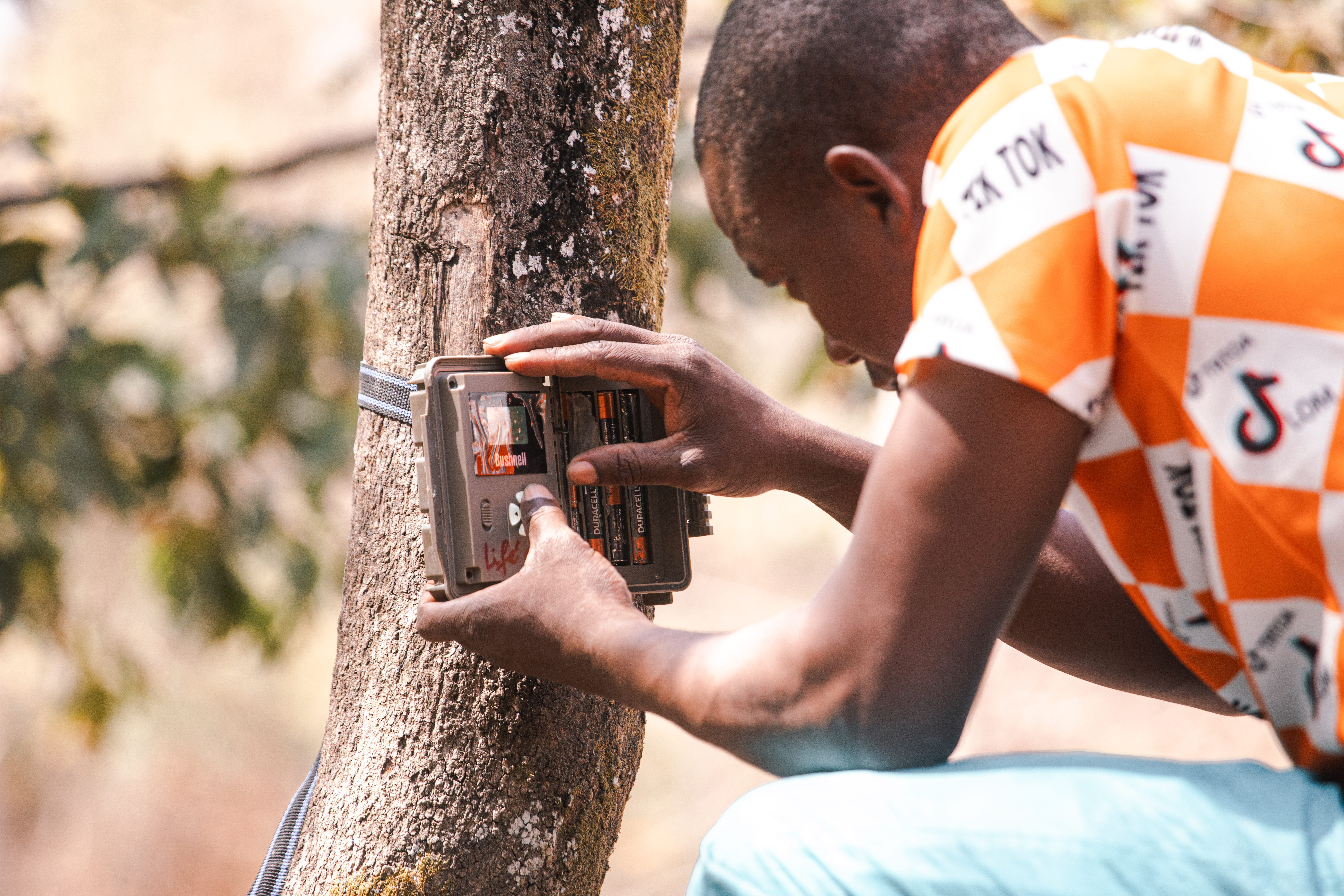
Ibrahima Gambo inspects a camera trap in Faro National Park, Northern Cameroon
Spending time looking at and eventually deciphering the images captured in the still of the night.
“The images tell me stories.Are they happy? Are they sad? And most importantly what we can do to help,” Ibrahima says.
This dalliance with technology, he says, will form the next frontier of the work his father started almost 40 years ago.
The Gambo family is already planning for the next chapter. Papa Gambo named his youngest son Ngniwa meaning “elephant” as a symbol of hope and restitution.
“Ngniwa was born just as I was changing my ways,” he says. “Through him, I continue to give back to the land.”
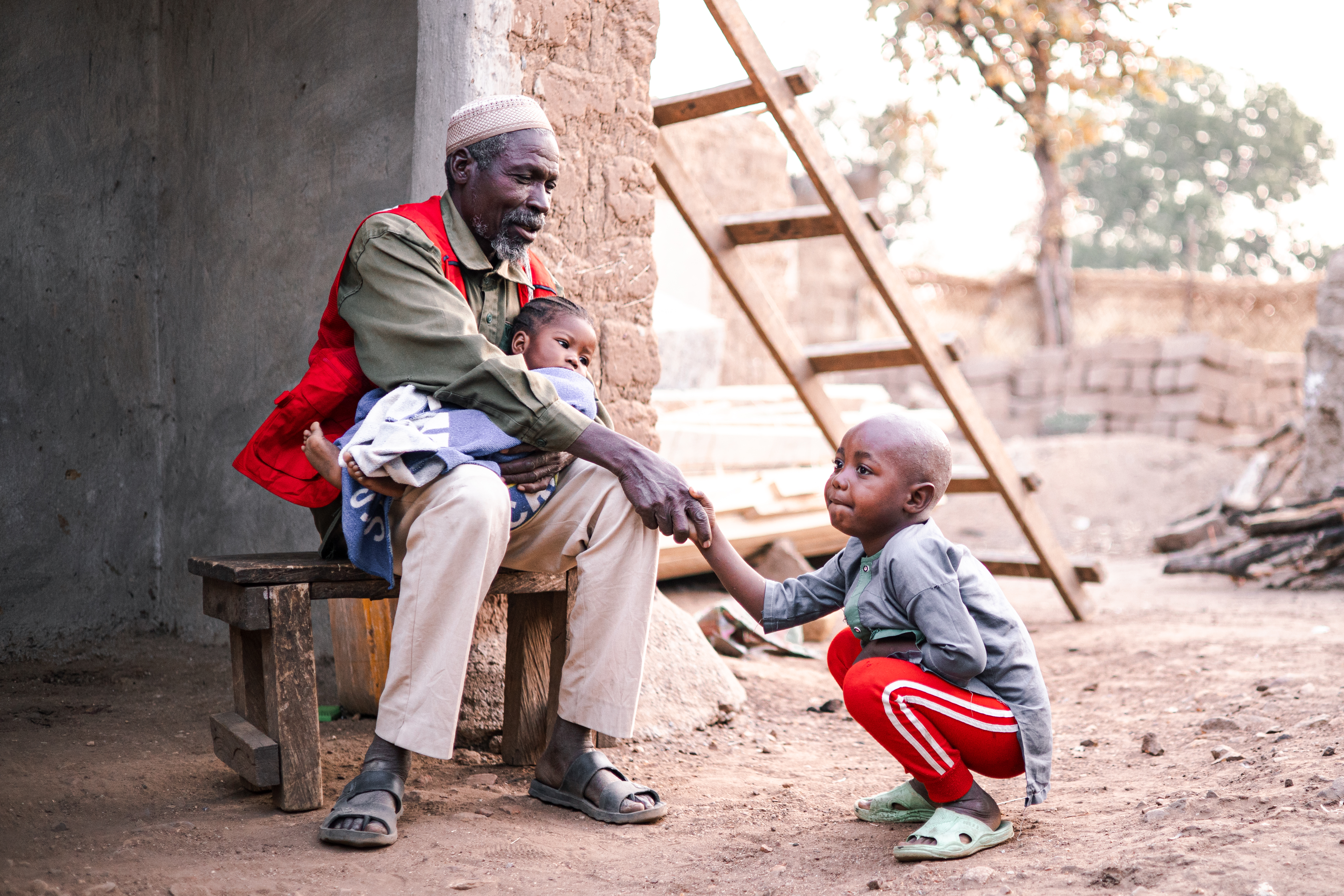
Papa Gambo and his youngest son Ngniwa